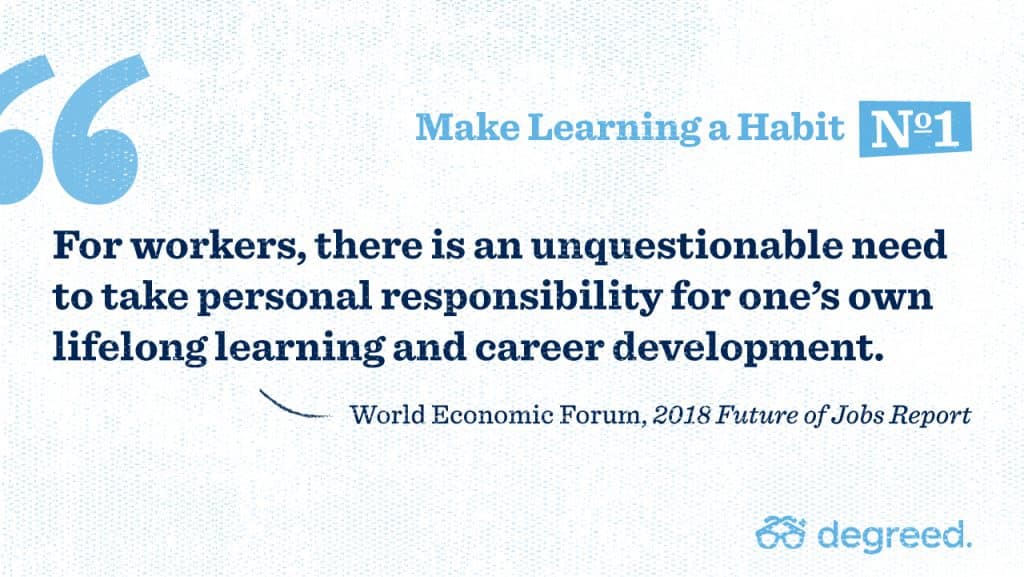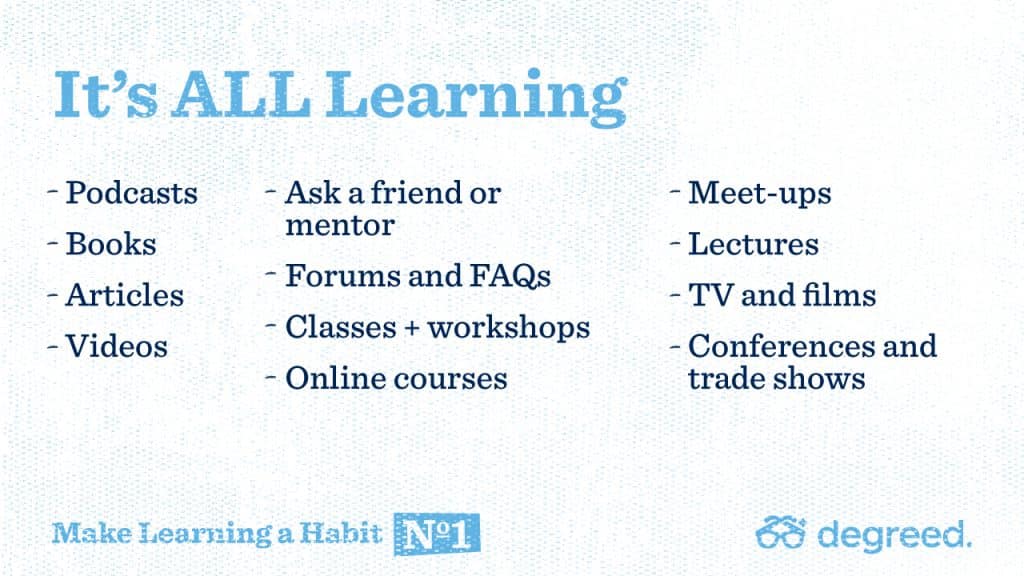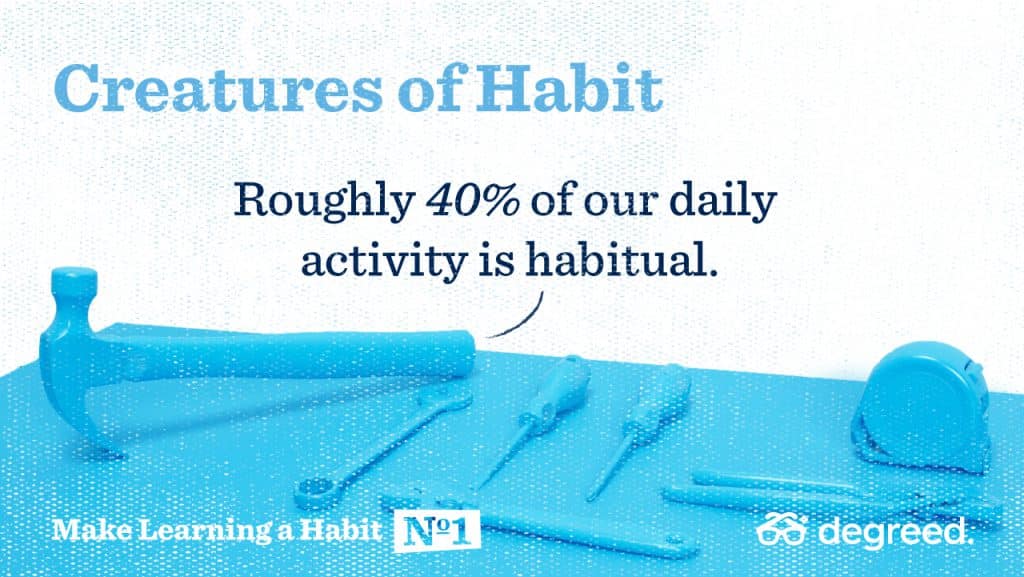We all love our smartphones, robot vacuums, and connected thermostats. On the other hand, if you’re like me, you may be wondering how to remain employable in an uncertain future. Thoughts like, “Will a robot take my job?” creep into your brain as you nervously start wondering what you can do about it.
You’ve read articles about how automation will disrupt the workforce and you’ve likely already seen the effects of digital transformation in your organization. Here’s the thing, though: you don’t have to panic. The key to future employability lies with proactively changing your mindset and looking toward the future. How do we get there? It all starts with building habits.

Change Can Be a Good Thing
A fourth Industrial Revolution is fully upon us, bringing with it tremendous opportunities along with immense change. The practical impact on our jobs will be the automation of many routine tasks, which frees us up for deeper work. We’ll have time to focus on applying skills such as critical thinking, creativity, strategic thinking, problem-solving and emotional intelligence — commonly referred to as “soft skills” or as I like to refer to them, “human skills.”
While artificial intelligence will make some jobs obsolete, it will also create new jobs. Those jobs can’t yet be predicted but we can take a look at the World Economic Forum’s skills for 2022 list. In the number two spot on the list of growing skills is “active learning and learning strategies.” I’ll bet that you didn’t see that coming.
Additionally, the World Economic Forum report doesn’t just tell us what skills to grow, it offers advice on how to get there. “For workers, there is an unquestionable need to take personal responsibility for one’s own lifelong learning and career development.” World Economic Forum, 2018 Future of Jobs Report
There is Learning All Around
The $64,000 question in all this is how do we find the time to develop and become lifelong learners? Step one is recognizing the importance of your growth and development and then making it a priority. The second step is making learning a habit.

Let’s start with a better understanding of modern learning. You’re likely learning and developing skills every day without realizing it. Like when you look up how to do something in Excel or ask your coworker how to animate your PowerPoint. Maybe you needed a statistic for a report that you found in a quick online search. These activities count as learning.
Learning is not limited to formal structures — courses, workshops, lectures — and it doesn’t need to take a tremendous amount of time, unlike earning a degree. It could be as simple as listening to a podcast on your daily commute or finishing that novel you’ve been reading. Even fiction can help you develop your emotional intelligence and make you more empathetic — both important leadership skills.
To make regular skill development and continuous learning even easier, I recommend leveraging the power of habit. Our brains operate in patterns and habits, and researchers estimate that about 40% of our daily activity is habitual. When a behavior becomes a habit, it enables our brains to conserve energy for other tasks.
When the brain identifies a new habit, the pre-frontal cortex hands control over to our basal ganglia, an older part of our brain responsible for the functions like procedural learning, eye movement, and emotion. The basal ganglia then follows the designated behavior pattern, or habit, chosen by the pre-frontal cortex which allows the prefrontal cortex to do other things.

The Process of Progress
To bring attention to these habits (and reward yourself for them), take it one step further and track these efforts in Degreed. It will enable you to see your progress and your growth over time. Record your learning using the Degreed button and if you’re someone who’s driven by metrics, you can look at your Degreed profile and see your progress over time.
Have more questions about habits? We’ll be expanding on the topic habits, how they work, and how to develop them in an upcoming blog post as part of our new Make Learning a Habit series. By shifting our mindsets and leveraging the power of habit, we’ll be more than ready for the changes headed our way in the next few years while still enjoying the convenience of a smart doorbell.
